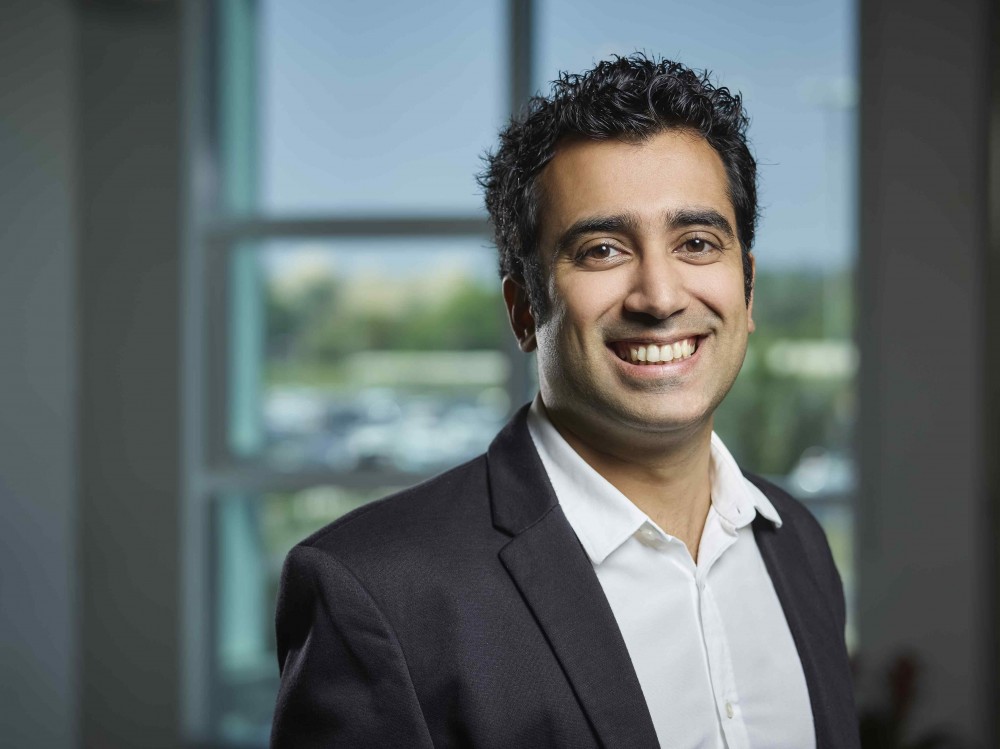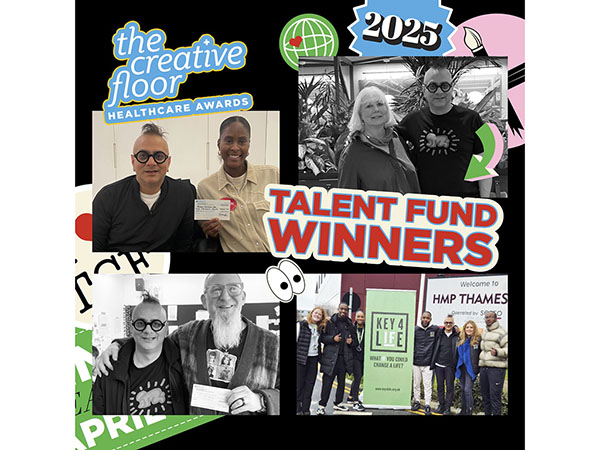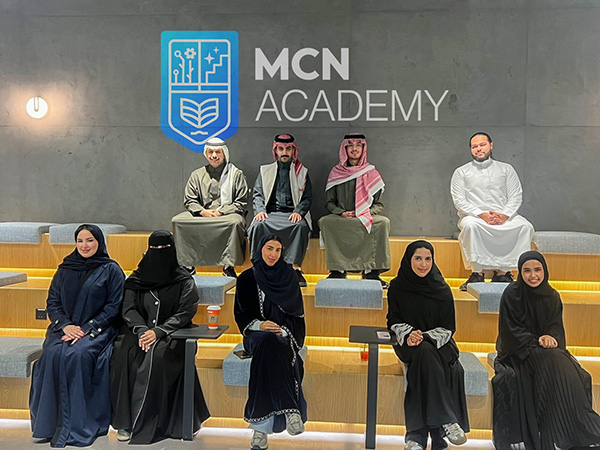News - Advertising
‘The demand for great talent is greater than ever’
by Iain Akerman
August 19, 2019
.jpg) Advertisement
Advertisement“The skill set we look for today is completely different than what was required 10 years ago,” says Amale Dagher, director of talent acquisition at Publicis Media Middle East. “We no longer only recruit marketers and creative minds and the ones who think outside the box. Today, we recruit engineers, analysts and scientists. Data is at the core of what we do on a daily basis, and for us to leverage that we need to recruit the talent that understands the importance of data, can analyse it, and is able to come up with insights and strategies that can transform our clients’ businesses."
For those attempting to break into the advertising and media industries, we’re a long, long way from the nostalgic days of art and copy or simple media planning and buying. Continuing digital transformation means the demand for data analysts, dynamic creative specialists, developers, digital designers, content creators and data planners is increasing on an almost monthly basis. At the same time, traditional advertising and marketing graduates are finding themselves adrift in a sea of data. When combined with a challenging economic environment, you begin to understand what kind of market we find ourselves in."
“The market is a bit tough in general compared to the heyday of a few years back, with job seekers needing to be a bit more patient to breakthrough as there are fewer positions open in our industry,” says Zeeshan Merchant, HR business partner at OMD UAE. “However, there are still always opportunities available to great talent who possess the skills that are in demand.
“There are increasing opportunities with roles that require a strong command of data analysis or technology. Even for roles that are not dedicated data/tech ones, there is a preference for people who are comfortable navigating these fields. Individuals who can supplement these skills with a sharp understanding of clients’ businesses are especially in demand."
“Our focus is fully on transformative candidates for specific roles, and high potential for the fresh graduates. Making the role, its responsibilities, and all the benefits that come with it as attractive as possible to gauge their interest is at the core of what we do as recruiters."--Sarah Moharram-Mosallam, associate director of talent acquisition at Publicis Communications.
Those skills, however, are in short supply. As a result, agencies are not only fighting for specialised talent, but are competing with tech and data firms for a very limited number of highly skilled people. For example, Soha Aoun Saad, Dentsu Aegis Network’s regional HR director for the MENA region, says advanced data science competencies are rare in the region, while there is a limited talent pool overall when it comes to digital and data expertise.
“We’re at the forefront of change and look for people who embrace this and help bring it about. If, on to top of this, they are natural storytellers who can extrapolate the information they have on hand, then even better."--Zeeshan Merchant, HR business partner at OMD UAE.
Demand for talent is also moving towards low cost countries where non-client interfacing roles are being relocated, says Saad. That means increasing demand in Egypt and Lebanon as employers look for more efficient ways to manage costs, but also in Saudi Arabia thanks to strong economic growth. All of which means the job market is more competitive than ever.
“Dubai remains the hub of this region and the demand for great talent is now greater than ever,” says Sarah Moharram-Mosallam, associate director of talent acquisition at Publicis Communications. “However, the supply that we have here is no longer enough. The industry is moving fast and it’s becoming extremely challenging to find the right talent in this region.”
The end result is a search for talent elsewhere. Although agencies have always looked further afield (to Europe and India for example), they are now targeting other industries, too, including consultancies such as Accenture and PwC. Yet this is also part of a widening of agencies’ own field of vision. As Moharram-Mosallam says, “as a media and creative communications group, we no longer only look for marketing and advertising graduates. We now target computer science graduates, computer engineering graduates, developers and data analysts. Most of all they need to have high potential and show the hunger for learning.”
"Of course talent, skill and a natural aptitude for the role that we’re recruiting for are always going to be important, but above that we always look for two things. The first is attitude; and the second is […] that we look for them to be nice, decent people."--Chris Bell, chief executive and managing partner at Face to Face
“Today’s market is a candidate-driven market,” adds Moharram-Mosallam. “The way we recruit has completely changed. Compared to just a few years ago, candidates now have far more power during the job search. This means that we don’t pick talent anymore. Talent also pick us. This is due to the fact that the skill set that we are looking for today is extremely hard to find, and qualified candidates today know their value more than ever before.
“Our focus is fully on transformative candidates for specific roles, and high potential for the fresh graduates. Making the role, its responsibilities, and all the benefits that come with it as attractive as possible to gauge their interest is at the core of what we do as recruiters."
None of which can sound particularly promising for traditional advertising and marketing graduates, thousands of whom enter the marketplace every year. When combined with a concern that new recruits lack the prerequisite work ethic, are reluctant to go above-and-beyond, and have a paucity of skills, the outlook can look extremely discouraging.
But if you’re a traditional advertising graduate, don’t despair. Although the rapid pace of change will require continuous upskilling, more often than not the basic prerequisite for any role is a genuine desire to work in the communications field and, as Moharram-Mosallam states, the possession of significant potential.
“First and foremost, we look for people who are keen to work in an exciting industry at the crossroads of media, technology, data, and entertainment,” says Merchant. “We’re at the forefront of change and look for people who embrace this and help bring it about. If, on to top of this, they are natural storytellers who can extrapolate the information they have on hand, then even better."
'People will remain critical to momentum and creativity as there is no algorithm for human nature”--Soha Aoun Saad, HR director at Dentsu Aegis MENA
Chris Bell, chief executive and managing partner at Dubai-based agency Face to Face, agrees. “Of course talent, skill and a natural aptitude for the role that we’re recruiting for are always going to be important, but above that we always look for two things,” he says. “The first is attitude, or more specifically the right attitude. An attitude where they’re prepared to get their hands dirty, work hard and take responsibility.
“The second, and this sounds rather old fashioned, is that we look for them to be nice, decent people. We have a view at Face to Face that we want to be ‘good people, creating great work’. The great work speaks for itself but the good people means that we’re always looking for people who are ‘good’ not only in the sense of being talented but also in how they carry themselves. Sickly sweet, insipid individuals, no, but decent human beings most definitely."
Bell also states that breaking into the advertising industry has always been difficult. “An agency can only ever be the sum of its parts, and those parts can only ever be the people that work there, so it’s in any decent agency’s best interest to make the recruitment process intense, challenging and difficult."
But if it is a candidate-driven market, then agencies also have to consider what it is they are offering prospective employees. Merchant, for example, believes agencies must understand the role that ‘purpose’ plays in attracting talent, while simultaneously recognising that potential employees “increasingly want to work in an organisation that provides self-fulfilment, a clear career path and diverse learning and growth opportunities."
"We as preferred employers should identify what job requirements we can be flexible with versus simply saying ‘everything is required.”--Amale Dagher, director of talent acquisition at Publicis Media Middle East
Perhaps more importantly, agencies must be more flexible in the way they assess talent and recruit them, says Dagher. “Understanding that today’s market is a candidate-driven one, with top skilled candidates having more options and multiple offers to choose from, we as preferred employers should identify what job requirements we can be flexible with versus simply saying ‘everything is required’,” she says. “It can take us a very long time to find the ‘ideal’ candidate when we could hire someone who can grow into the job."
There is also a recognition that, although “technology and data are critical and central to our business,” says Saad, “people will remain critical to momentum and creativity as there is no algorithm for human nature”. Therefore, in many ways the market remains similar to how it has always been, with individual candidates having to know how to sell themselves.
“Start by knowing your passion and purpose so you are clear about what you want to do,” advises Saad. “Show how your qualifications are relevant to the job you are applying for. Communicate less about your academic qualifications and more about putting your education into context. Finally, just be yourself."



.jpg)










.jpg)




